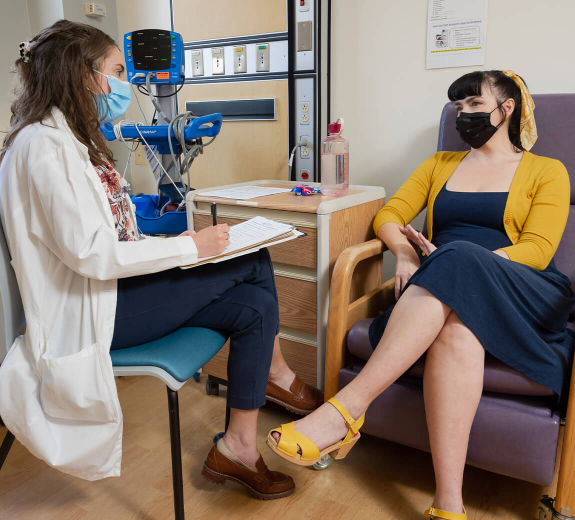
FAQs About Clinical Research Studies
Have you considered volunteering for a clinical research study, but were unsure if it was something you could do comfortably and confidently? Below are answers to your questions.
What Are Clinical Studies?
Clinical studies are medical research studies in which people participate as volunteers. These studies, also called trials, are a way of developing new treatments and medications for diseases and conditions. There are strict rules for clinical trials, which are monitored by the National Institutes of Health and the U.S. Food and Drug Administration. Volunteers receive access to new experimental approaches and the opportunity to contribute to learning about and treating their disease.
Why Are They Necessary?
Researchers at BRI are keenly aware of the expression “in vivo, veritas.” Truth (veritas) in clinical research comes from testing in real life (vivo), not in test tubes. When laboratory and preclinical studies indicate a high probability of success, people are invited to participate as research team members, volunteering to help advance science and medicine through clinical trials and biorepositories that study blood and tissue samples. Joining a trial may mean that some participants will receive an investigational drug, treatment or device. Whereas joining a biorepository means donating a sample rather than receiving something investigational.
Why Should I Participate?
The health of millions has been improved because volunteers joined clinical research studies. Without research participants, advancements in health cannot be made. Whether testing a new drug therapy, studying a combination of drugs in a new way or monitoring immune cells in response to a novel treatment, BRI’s clinical and translational research programs provide a coordinated system for participants. Staff members work with the volunteers to monitor health, safety and changes in their diseases profiles.
Is There A Cost To Participate?
Typically, costs associated with the study, such as study medication, physical exams and education are paid by the study. Sometimes the study covers travel expenses as well as a small stipend for your time and effort.
Can I Participate If I Am Healthy?
A volunteer with no known significant health problems who participates in research to test a new drug, device or intervention is known as a “healthy volunteer.” At BRI, disease-free people who want to help advance knowledge can join the BRI biorepositories. In a typical study, blood samples, tissue samples, medical history and other data from healthy volunteers are being compared with those with autoimmunity such as type 1 diabetes, rheumatoid arthritis or multiple sclerosis to understand how healthy immune systems work.
Must I Be A Virginia Mason Patient To Participate?
You don’t need to be a Virginia Mason patient. Anyone who qualifies for a study can participate.
How Can I Find Out Which Studies Are Open?
BRI’s biorepositories and clinical research trial disease areas are listed at our Biorepositories, Clinical Research Program, or Diabetes Clinical Research.
BRI conducts trials in many different diseases through our Diabetes Research Program, the Immune Tolerance Network and the BRI Clinical Research Program partnership with physicians at Virginia Mason Medical Center.
Immuno-what? Hear the latest from BRI
Keep up to date on our latest research, new clinical trials and exciting publications.


